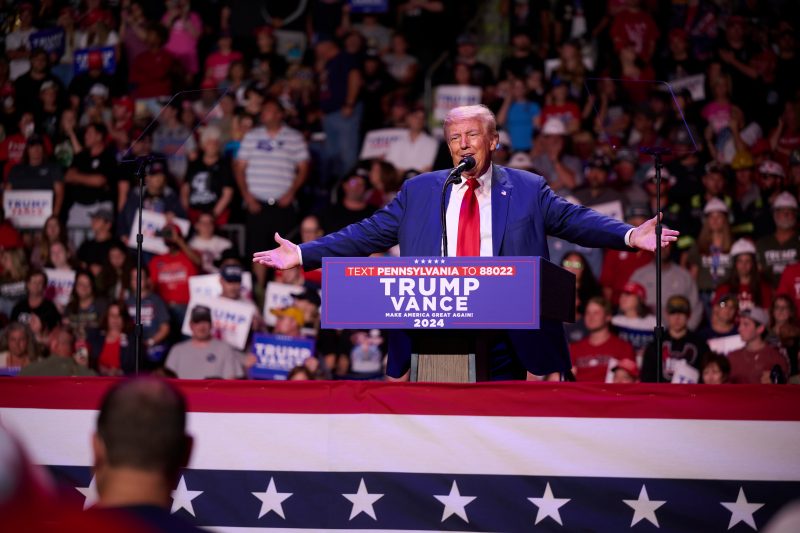In a recent address in Pennsylvania, former President Donald Trump made several controversial remarks that seem to have deviated from his intended focus. Among the raised eyebrows were Trump’s unusual digressions, threats towards his opponents, and his assertion of being a protector of women.
The event, which was expected to center on policy discussions and updates on the Republican party’s future plans, took a surprising turn as Trump delved into various topics seemingly unrelated to the main agenda. Critics have pointed out the disjointed nature of his speech, highlighting the lack of coherent structure and the frequent tangents that veered off-topic.
One of the most concerning aspects of Trump’s address was his use of threatening language towards those he perceives as adversaries. This aggressive rhetoric is not uncommon for the former president, but its prominence at an official event raises questions about the tone and style of discourse within the Republican party.
Moreover, Trump’s assertion of being a protector of women struck many as contradictory, given his history of controversial statements and alleged misconduct towards women. Some critics argued that his track record on women’s issues does not align with the image he sought to portray during the event.
Despite the controversy surrounding his speech, Trump remains a polarizing figure with a dedicated base of supporters. His ability to command attention and dominate the political conversation is undeniable, making him a force to be reckoned with in the political landscape.
As the Republican party navigates its future direction and seeks to regain control of the political narrative, events like the one in Pennsylvania shed light on the challenges and opportunities that lie ahead. It remains to be seen how Trump’s influence will continue to shape the party’s identity and electoral prospects in the years to come.


